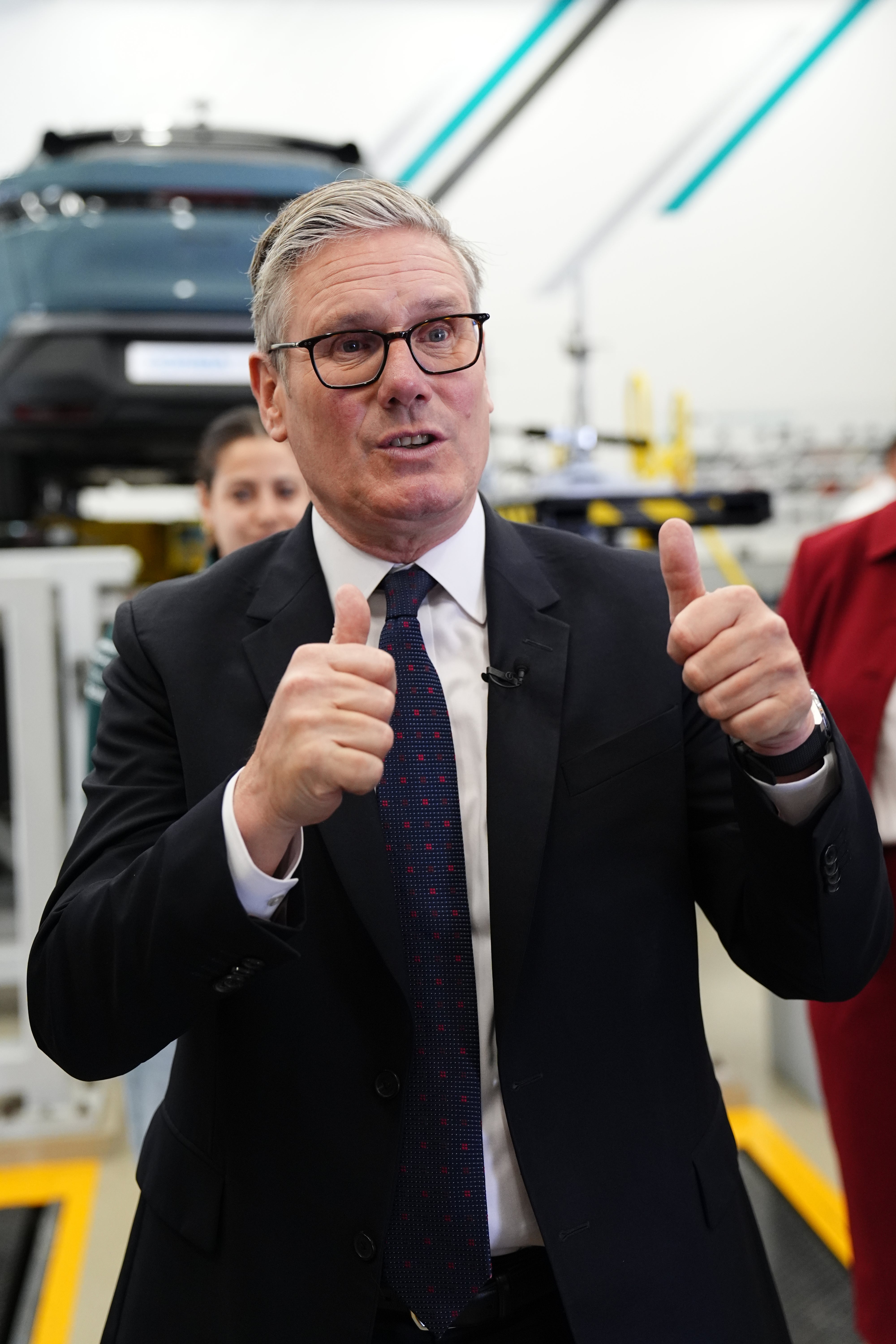
The British state has been “overbearing and feeble” and “too exposed to global volatility” Sir Keir Starmer has said, as he outlined plans to overhaul the government’s relationship with industries.
In the Industrial Strategy published on Monday, the government has backed UK industries it thinks have the potential to grow, with the aim of creating jobs and prosperity across Britain and Northern Ireland.
Artificial intelligence (AI), offshore wind power, and electric vehicle batteries are among the sectors which feature.
The strategy aims to help realise Labour’s mission pledge to create sustained economic growth, which ministers want to see become the highest in the G7.

In the strategy’s foreword, alongside chancellor Rachel Reeves and business secretary Jonathan Reynolds, Sir Keir said that “when new opportunities present themselves, Britain often finds itself too regulated to take advantage”.
The ministers added: “The result is a state that is both overbearing and feeble, poorly serving an economy that has become too reliant on one place, too exposed to global volatility and too sluggish to take advantage of transitions like the move to homegrown clean energy”.
They said that the strategy marks a “new approach” and accounts for a decade-long plan to make Britain an attractive country to invest in.
The industrial strategy focuses on eight areas.
As well as the main strategy, on Monday the government also published five separate “sector plans”, with more details on distinct policy areas: advanced manufacturing, creative industries, clean energy, digital and technology, and professional and business services.

Plans for the defence, financial services and life sciences sectors will come later.
The ministers said that the eight sectors had been “identified as those best placed to create the wealth, jobs, and higher wages our country needs in every community”.
The five sector plans published on Monday emphasised the opportunities for growth across the regions and nations of the UK.
Edinburgh’s robotics and agri-tech research hubs, and the space industry of the Oxford to Cambridge corridor featured among advanced manufacturing industries.
Onshore and offshore wind in south-west Wales, and heat pump producers in Northern Ireland feature in the clean energy sector plans, while Birmingham and Manchester’s AI and cyber industries are highlighted in the plan for digital technology.
Several of the sector plans also address the changes which AI could have upon their industries.

The creative industries for example, will need to “embrace new technology”, one document says, insisting the Government will maximise the value of AI, while “protecting and incentivising human creativity”.
The strategy includes details on several ways the Government wants to make it easier for firms to do business, such as tackling “high industrial electricity costs” and reducing “regulatory burdens”.
It also says ministers will “remove planning barriers” and “ensure our tax system supports growth”.
As part of the plans, energy costs for businesses will be cut by scrapping green levies to help them compete with foreign rivals.
From 2027, a new British Industrial Competitiveness Scheme will cut costs by up to £40 per megawatt hour for over 7,000 manufacturing firms by exempting them from levies on bills including the renewables obligation, feed-in tariffs and the capacity market.
The strategy comes after the latest figures indicated the economy shrank by 0.3% in April, the biggest monthly contraction in gross domestic product for a year-and-a-half, as businesses felt the impact of Donald Trump’s tariffs and domestic pressure as a result of hikes to firms’ national insurance contributions.







